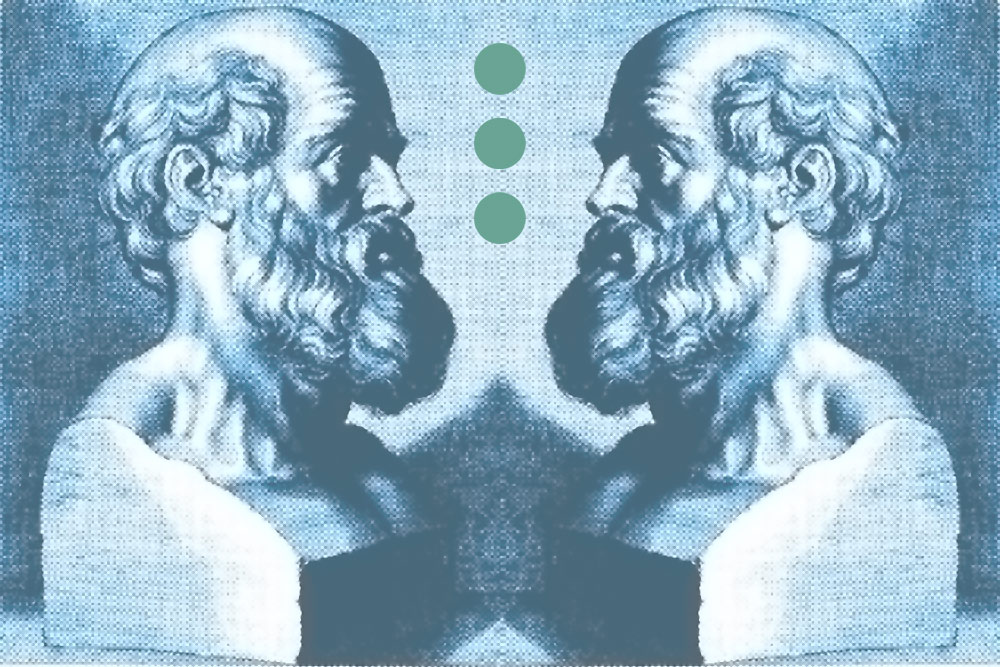
Probably the most commonly known of the Greek medical texts is the Hippocratic Oath. It requires a new doctor to promise that they will follow several professional ethical principles. It also links the medical student to their teacher and the wider community of doctors with obligations equivalent to that of a family member. In fact, by requiring strict loyalty, the Oath may have heralded the early stages of medical training for those outside the first Hippocratic medicine families, the Asclepiads of Kos.
The Hippocratic Oath has been rewritten over the centuries in order to fit the ideals of various cultures influenced by Greek medicine. It is not a requirement by most modern medical schools, contrary to common opinion, although, in the 21st century, some have introduced versions that fit modern medical professions. The expression, “First, do no harm,” which is generally applied to the Oath, is not directly included in the classic version.
Traditional Interpretation of the Hippocratic Oath
I swear by Apollo the Physician and Asclepius, and Hygieia and Panacea and all the gods and goddesses as my witnesses, that, according to my ability and judgment, I will keep this Oath and this contract:
- I will respect the hard-won scientific gains of those physicians in whose steps I walk, and gladly share such knowledge as is mine with those who are to follow.
- To hold him who taught me this art equally dear to me as my parents, to be a partner in life with him, and to fulfill his needs when required; to look upon his offspring as equals to my own siblings, and to teach them this art, if they shall wish to learn it, without fee or contract; and that by the set rules, lectures, and every other mode of instruction, I will impart a knowledge of the art to my own sons, and those of my teachers, and to students bound by this contract and having sworn this Oath to the law of medicine, but to no others.
- I will use those dietary regimens which will benefit my patients according to my greatest ability and judgement, and I will do no harm or injustice to them.
- I will not give a lethal drug to anyone if I am asked, nor will I advise such a plan; and similarly I will not give a woman a pessary to cause an abortion.
- In purity and according to divine law will I carry out my life and my art.
- I will not use the knife, even upon those suffering from stones, but I will leave this to those who are trained in this craft.
- Into whatever homes I go, I will enter them for the benefit of the sick, avoiding any voluntary act of impropriety or corruption, including the seduction of women or men, whether they are free men or slaves.
- Whatever I see or hear in the lives of my patients, whether in connection with my professional practice or not, which ought not to be spoken of outside, I will keep secret, as considering all such things to be private.
- So long as I maintain this Oath faithfully and without corruption, may it be granted to me to partake of life fully and the practice of my art, gaining the respect of all men for all time. However, should I transgress this Oath and violate it, may the opposite be my fate.
Modern Interpretation of the Hippocratic Oath
I swear to fulfill, to the best of my ability and judgment, this covenant:
- I will respect the hard-won scientific gains of those physicians in whose steps I walk, and gladly share such knowledge as is mine with those who are to follow.
- I will apply, for the benefit of the sick, all measures that are required, avoiding those twin traps of overtreatment and therapeutic nihilism.
- I will remember that there is an art to medicine and science, and that warmth, sympathy, and understanding may outweigh the surgeon’s knife or the chemist’s drug.
- I will not be ashamed to say, “I do not know” nor will I fail to call in my colleagues when the skills of another are needed for a patient’s recovery.
- I will respect the privacy of my patients, for their problems are not disclosed to me that the world may know. Most especially must I tread with care in matters of life and death. If it is given me to save a life, all thanks. But it may also be within my power to take a life; this awesome responsibility must be faced with great humbleness and awareness of my own frailty. Above all, I must not play at God.
- I will remember that I do not treat a fever chart, a cancerous growth, but a sick human being, whose illness may affect the person’s family and economic stability. My responsibility includes these related problems, if I am to care adequately for the sick.
- I will prevent disease whenever I can, for prevention is preferable to cure.
- I will remember that I remain a member of society, with special obligations to all my fellow human beings, those sound of mind and body and the infirm.
- If I do not violate this oath, may I enjoy life and art, respected while I live and remembered with affection thereafter. May I always act to preserve the finest traditions of my calling, and may I long experience the joy of healing those who seek my help.
